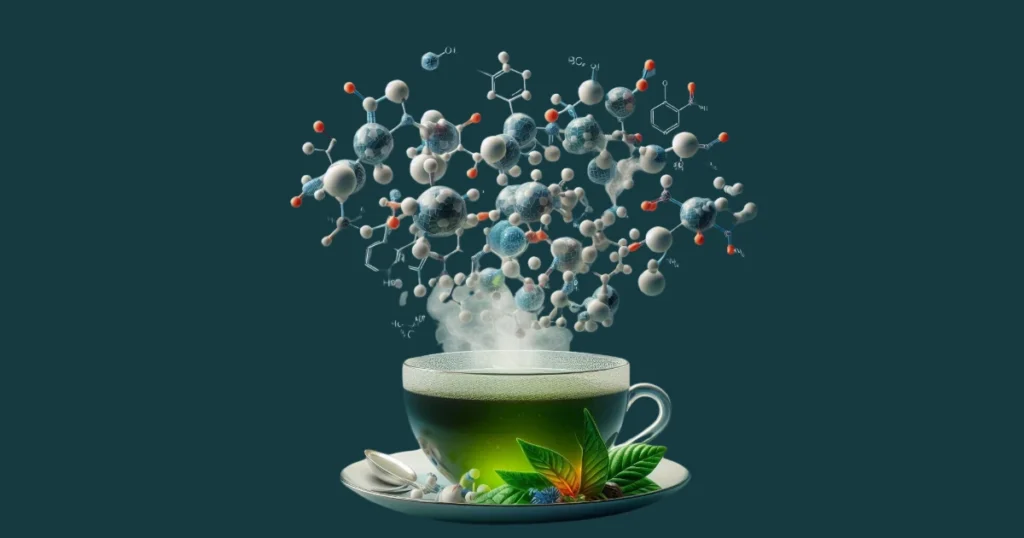
L-theanine is an amino acid predominantly located in green and black tea, as well as certain types of mushrooms. It is also accessible in the form of pills or tablets.
This compound is reputed to alleviate anxiety, mitigate stress, and diminish insomnia. Prior to personal experimentation, it is advisable to gather comprehensive information regarding its potential health advantages, along with any associated risks or complications.
L-theanine benefits and uses
Many people widely recognize L-theanine for promoting relaxation, and it also provides several additional health benefits, including:
Reduction of anxiety and stress
Enjoying a warm cup of tea can foster a sense of calm, and studies indicate that it not only soothes the mind but does so without inducing sleepiness.
A review encompassing five randomized controlled trials with 104 participants revealed that four of these trials associated L-theanine with diminished stress and anxiety in individuals facing challenging situations.
Furthermore, researchers from the Journal of Clinical Psychiatry examined individuals diagnosed with schizophrenia and concluded that L-theanine effectively reduces anxiety and alleviates symptoms.
Enhanced concentration
When combined with caffeine, L-theanine may enhance focus and attention.
A small-scale study demonstrated that a mixture of L-theanine (97 milligrams) and caffeine (40 milligrams) improved the concentration of a group of young adults during challenging tasks.
For reference, a standard cup of coffee contains approximately 95 milligrams of caffeine. Participants in this study reported feeling more alert and less fatigued overall.
Improved immune function
Certain studies suggest that L-theanine may bolster the immune system’s performance.
Research appearing in the journal Beverages indicates that the consumption of L-theanine can lead to a reduction in the rate of upper respiratory tract infections.
Additionally, another study highlighted the potential of green tea catechins—antioxidants—alongside theanine in preventing influenza. Another investigation suggested that L-theanine might aid in reducing inflammation within the intestinal tract. However, further research is necessary to validate and elaborate on these findings.
Tumor and Cancer Treatment
“L-theanine enhances the anti-tumor properties of certain chemotherapy agents.” Given these encouraging results, researchers are optimistic that L-theanine may also bolster the efficacy of chemotherapy in combating cancer.
While definitive evidence proving that tea can prevent cancer is lacking, numerous studies indicate that individuals who consume tea regularly exhibit lower cancer rates.
A research initiative in China indicated that women diagnosed with ovarian cancer who ingested at least one cup of green tea per day had an extended lifespan relative to those who did not partake in green tea consumption.
Another investigation comparing tea drinkers to non-drinkers revealed that women who consumed green tea were 32 percent less likely to develop pancreatic cancer.
Blood Pressure Management
L-theanine may prove advantageous for individuals who experience elevated blood pressure during stressful circumstances.
One study indicated that participants who typically exhibited higher blood pressure following specific cognitive tasks experienced a reduction in blood pressure increases when administered L-theanine.
The same study noted that caffeine produced a similar effect, albeit to a lesser extent.
Additional research suggests that L-theanine could facilitate improved sleep quality, likely due to its relaxation-promoting properties.
In one study, doses of 250 mg and 400 mg of L-theanine significantly enhanced sleep quality in both animals and humans.
A dosage of 200 mg of L-theanine lowers resting heart rate, indicating its potential to foster relaxation.
L-theanine may also assist boys diagnosed with attention deficit hyperactivity disorder (ADHD) in achieving better sleep.
A double-blind study examined the effects of L-theanine on 98 boys aged 8 to 12 years.
One randomized group took two 100 mg chewable tablets of L-theanine twice daily, while the other group received placebo pills.
After a period of six weeks, individuals in the group that ingested L-theanine reported experiencing longer and more rejuvenating sleep.
While these results are encouraging, additional studies are necessary to confirm its safety and effectiveness, especially concerning children.
Risks and side effects
There are currently no confirmed or direct side effects associated with the consumption of L-theanine. In general, it is considered safe to consume teas and supplements that contain this amino acid.
However, it is essential to recognize that the Food and Drug Administration (FDA) does not oversee the regulation of dietary supplements. Consequently, the responsibility for ensuring the safety of these products lies with the manufacturers.
While some studies indicate potential anti-tumor benefits of L-theanine, it is important to be aware that teas containing amino acids may also include other components that could pose risks for individuals undergoing cancer treatment.
According to the Memorial Sloan Kettering Cancer Center, the polyphenol EGCG present in green tea may diminish the effectiveness of certain chemotherapy medications, such as bortezomib.
Therefore, it is vital for individuals receiving chemotherapy to consult their healthcare provider prior to incorporating green tea into their treatment regimen.
Although there have been no reported adverse effects from L-theanine itself, the caffeine content in large quantities of green tea may lead to:
- nausea
- upset stomach
- irritability
Additionally, pregnant or breastfeeding women should limit their tea consumption to prevent excessive caffeine intake.
It is advisable to consult with your healthcare provider regarding what is safe for your specific situation. This recommendation is equally applicable to children.
Safe dosage
Due to the absence of definitive research, a specific safe dosage recommendation for L-theanine remains undetermined. However, adhering to general guidelines for caffeine consumption may be beneficial for individuals who consume tea.
It is advisable for individuals taking an L-theanine supplement to seek advice from a healthcare professional regarding appropriate dosage.
The botoom line
Researchers have shown that L-theanine, a compound present in green tea, alleviates anxiety, enhances concentration, and promotes better sleep without causing drowsiness. While experts generally consider it safe, the FDA does not regulate it, which may lead to variations in quality.
It is advisable to consult a healthcare professional prior to use, particularly for individuals who are pregnant or receiving treatment for cancer.


